Premeditated Metaphor Murder
“Once you’ve got this thing baked, you’ve got to get it out of the oven and into the refrigerator and start eating it pretty quickly. Because if you let it sit on the table — I’m going to beat the metaphor to death — the ants will start eating the cake up.”
New Mexico Has A Question
“An article on Friday about a fight in New Mexico over chile peppers that are grown outside the state yet are being sold as ‘homegrown’ referred incorrectly to the existence of an official state question. The state does indeed have such a question, having adopted it in 1996. (The reporter suggested that if the state were to adopt an official question, it no doubt would be: ‘Red or green?,’ as to which pepper is preferred. That is, in fact, the official question — about the state’s official vegetable.)”
Bay Area Man Keeps Same Media Job For 63 Years

Who says there’s no job security in media? Everyone says that, because it’s true. But there are inspirational exceptions. Meet 94-year-old San Francisco Chronicle science reporter David Perlman, who cranked out 111 articles last year and continues to work full-time at the paper. He still loves his beat and his desk is in a sunny corner of the Chronicle newsroom, so there’s no reason to quit working now.
After all, he said over a burger at a South of Market dive near Chronicle headquarters, “I’m doing exactly what I wanted to do all my life, be a reporter.”
He “majored in the Spectator,” the Columbia student paper, and began his career in 1938 with a summer job covering the cops beat in upstate New York. He was a copy boy at the Chronicle before World War II, and after his Army service in Europe stayed abroad as a reporter for the Herald Tribune. By 1951 he was back in San Francisco, reporting everything from local business news to the obscenity trial over Allen Ginsberg’s “Howl,” but he got the science bug when a skiing accident left him bedridden with a book by British astronomer Fred Hoyle called The Nature of the Universe. Once Perlman could walk and work again, he was hanging around Bay Area observatories and laboratories, teaching himself how to cover science.
Decades later, Perlman published one of the very first news reports on a mysterious new combination of pneumonia and Kaposi’s sarcoma affecting gay men in California, and would go on to report and write hundreds of articles about the epidemic.
He had been promoted to city editor in 1978, just before Harvey Milk’s assassination and the mass suicides at San Francisco cult leader Jim Jones’ camp in Guyana. But reporting was too much fun, so Perlman went back on the science beat and has been there ever since.
People usually don’t have anything nice written about them while they’re still alive. Perlman is now the oldest daily newspaper reporter still working, so he has lived to see this latest nice feature about himself, in the Los Angeles Times. On the occasion of his 90th year, both the New York Times and the American Journalism Review published articles about Perlman’s long career.
Unlike younger journalists, who generally sit in front of a computer re-blogging stuff from other blogs that blockquoted other blog posts, Perlman likes to go get stories in person. In recent years, he has stayed up all night at JPL to watch our robots land on Mars and accompanied the team of paleoanthropologists who discovered the fossilized remains of the 4.4-million-year-old human ancestor Ardipithecus ramidus in Ethiopia. His most recent feature, from Friday’s paper, found him in the home of an Alameda marine biologist with bedrooms full of giant aquariums for the breeding of a rare octopus.
Perlman’s got not one but two perfect origin stories for his life as a newspaperman:
My mother had a friend who was a reporter on the Brooklyn Daily Eagle, and every year he used to give us free tickets to the Ringling Brothers Circus. I must have been about 10 or 11, and I thought that was the most fantastic thing in the world — to be a reporter and get free circus tickets! Then I saw the stage performance of the play “The Front Page.” And that was when I knew that I wanted to be a newspaper reporter just like those guys.
Defying Logic, Food From Place That Sells Furniture Not What It Seems

“The escalating crisis over horse meat in beef products in Europe claimed another big retail victim Monday when the Swedish furniture giant, Ikea, withdrew meatballs from sale in 14 European countries.”
— Man, how have European vegetarians not all perished from explosive smugness yet?
Photo of standard IKEA meatballs by Yoppy.
Animated "Achewood"
http://player.vimeo.com/video/60365255?portrait=0&color=ffffff
Achewood Television Trailer One “Hello, world” from therussians on Vimeo.
So, uh, this might be happening. I’m not even sure how to feel! I will go with “hopeful” for now.
Let's Just Pretend to Work Today
Adam Phillips tells you how to succeed at the New York Public Library; Lorin Maazel finishes his triumphant return to the Met with “Don Carlo”; Solange tears down Webster Hall; McSweeney’s Quarterly shows off their issue 42 at McNally Jackson. AND MORE.
Why We Need Best Supporting-Supporting Actor & Actress Categories
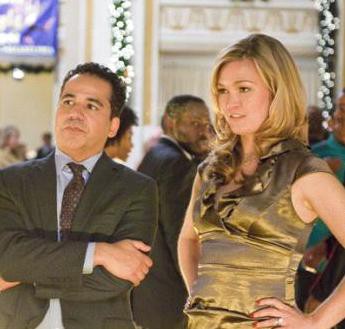
This might sound a little nuts at first, but hear me out: the Academy needs to add another Acting category. I know, I know: the ceremony is already too long, and actors already get too much attention, and there are entire subsections of film workers not being honored at all.* And certainly I believe that the Academy should recognize the best of everything from trailers to end credits; as “a professional honorary organization dedicated to the advancement of the arts and sciences of motion pictures,” it should recognize dedicated professionals in all the different fields that make up movies. Why not recognize the people behind particularly striking title sequences or who make credits that an audience will actually sit through and enjoy? Make it about the entire filmmaking process! Mix it up! Let’s stay all night, why not? They’re never going to actually bring it back to two hours so let’s stop the pretense. But those are all ideas for another time, right now I’m arguing for a third acting category.
It’s Oscar time, hence, a series about our strongest movie opinions, past and present.
• ‘Crash’: The Most Loathsome Best Picture Of Them All
• How Did ‘Forrest Gump’ Ever Beat Out ‘Pulp Fiction’ For Best Picture?
• ‘The Best Exotic Marigold Hotel’ Is My Favorite Movie Of 2012
You see, there really are only a couple handfuls of “lead” roles every year, so every other performance is relegated to the Supporting category. Eight memorable minutes on screen, like Dame Judi Dench in Shakespeare in Love? Supporting! Narrate the entire movie, playing ultimately the most powerful character, like Kevin Spacey in The Usual Suspects? Supporting! It’s an incredibly wide net and smaller roles, like Dench’s, are the exception to the rule — look at this year’s nominees for Supporting Actress. Helen Hunt is practically a lead role, Anne Hathaway monopolized conversations about Les Miz while having, let’s say, mostly front-loaded screen time, Amy Adams and Sally Field were major players in their respective films, while Jacki Weaver is on screen a lot in Silver Linings Playbook but rarely speaks. Lots of smaller, but still excellent, performances end up in the snub column in favor of weightier, more dramatic roles. This tends to punish comedies and ensemble casts with a deep bench like Network, Magnolia, or Pulp Fiction.
So I propose adding “Best Supporting-Supporting Actor/Actress.” This category would recognize performances small enough that, if they’d been played mediocrely they probably wouldn’t have greatly harmed the movie — but where, being great, the performance elevates the entire film. These smaller roles, often inhabited by lifelong character actors, take the film up a level by making the world seem richer, more believable. Now, I don’t mean wink-y cameos, or blink-and-you’ll-miss-it appearances. All of the proposed nominees below, they’re for characters not meaty enough to be honored as Supporting. But as Supporting-Supporting — maybe we need a better name for that — they stick out as the absolute best.
Last year:
Best Supporting-Supporting Actor
Albert Brooks, Drive
Benedict Cumberbatch, Tinker Tailor Soldier Spy
Paddy Considine, Submarine
Nick Krause, The Descendants
Corey Stoll, Midnight in Paris
Would also accept: Tom Hardy, TTSS
Best Supporting-Supporting Actress
Jill Clayburgh, Bridesmaids
Judy Greer, The Descendants
Gwyneth Paltrow (and/or the inside of her scalp), Contagion
Elizabeth Reaser, Young Adult
Maggie Smith, Harry Potter and the Deathly Hallows Pt. II
Would also accept: Paula Patton, Mission Impossible: Ghost Protocol, Anna Kendrick, 50/50.
This year:
Best Supporting-Supporting Actor
Reda Kateb, Zero Dark Thirty
Victor Garber, Argo
Samuel L. Jackson, Django Unchained
Matthew McConaughey, Magic Mike
Bradley Whitford, The Cabin in the Woods
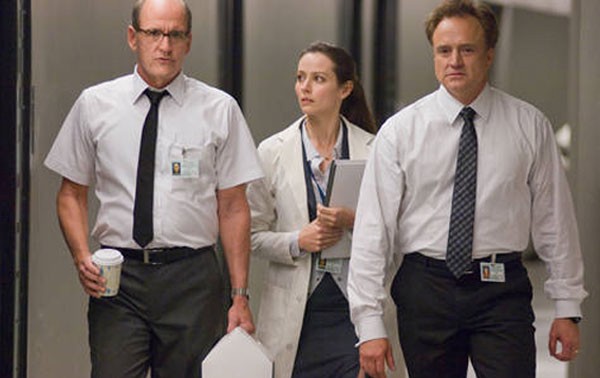
It’s kind of a toss-up between Bradley Whitford and Richard Jenkins for Cabin in the Woods, but Jenkins would have won this category in 2009 for A Serious Man, so I’m okay giving this nod to Bradley.
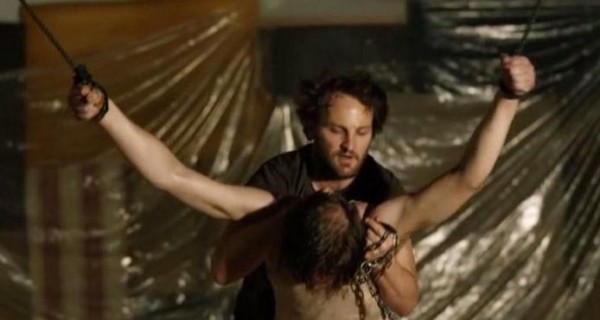
Reda Kateb was the torture victim to Jason Clarke’s torturer in Zero Dark Thirty, and did amazing work in the role despite having hardly any lines.
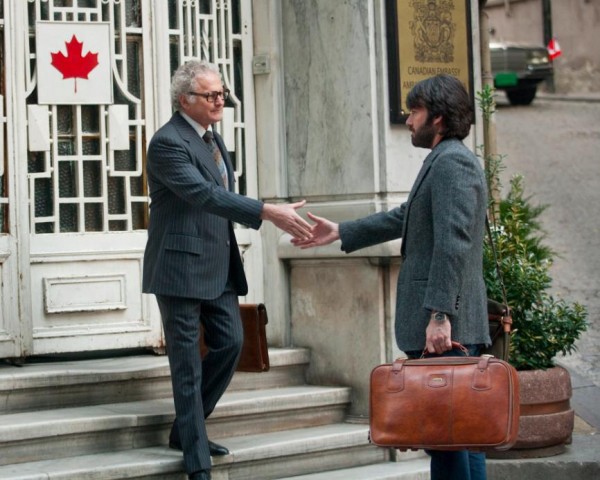
In the case of Victor Garber: Didn’t you wish he had more screen time, too?
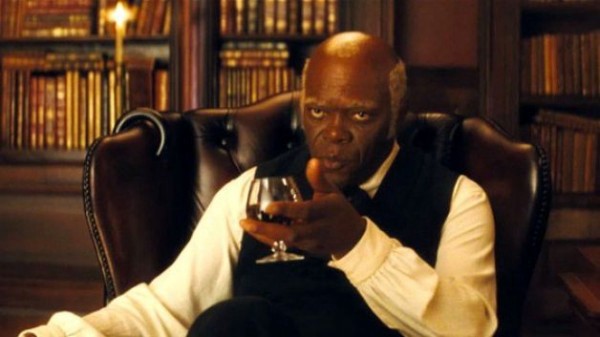
And as far as Samuel Jackson: COME ON!
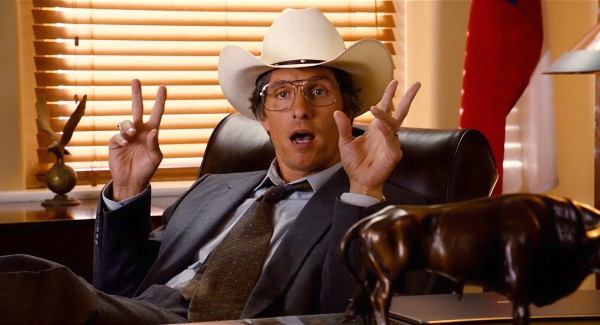
Would also accept: Matthew McConaughey, Bernie.
Best Supporting-Supporting Actress
Judi Dench, Skyfall
Jennifer Ehle, Zero Dark Thirty
Amandla Stenberg, The Hunger Games
Rebel Wilson, Pitch Perfect
Kerry Washington, Django Unchained
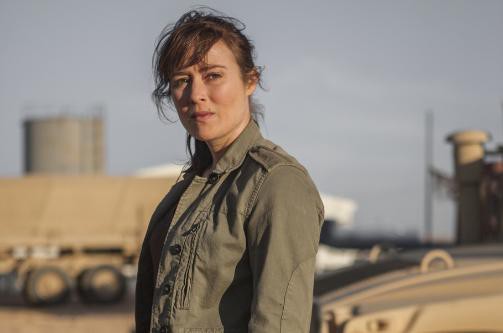
In my mind, Ehle is the winner of this category…
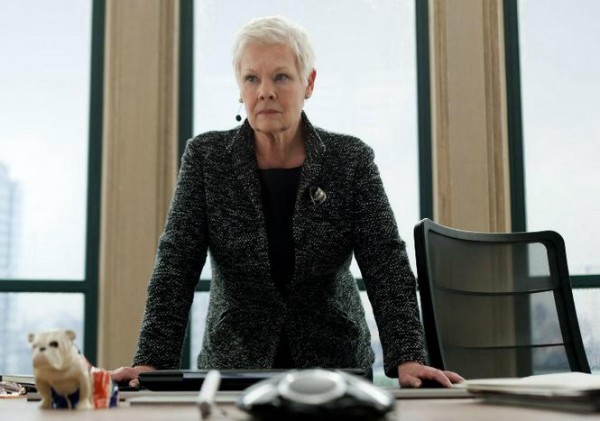
… while Dench gets the “obviously” place on the ballot.
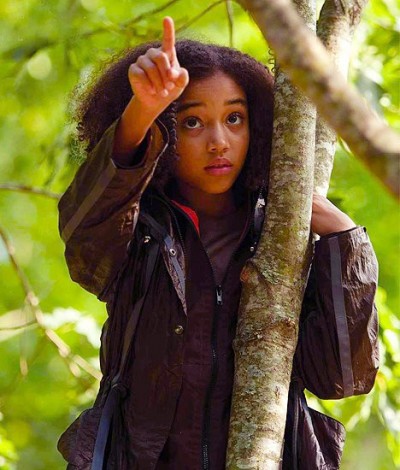
(Like you weren’t thrilled by her performance as Rue.)
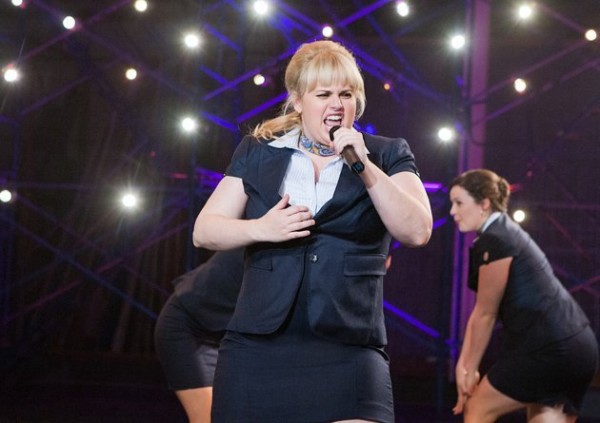
Rebel Wilson was just !!! in Pitch Perfect.
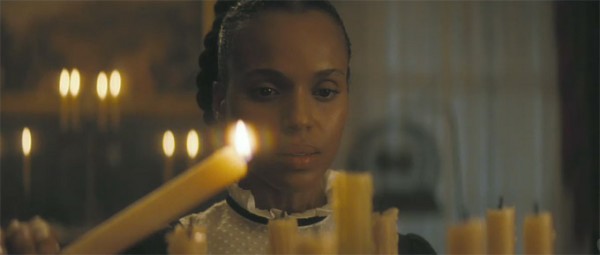
Kerry Washington’s part in Django Unchained was apparently drastically cut down from what it was supposed to be — if it hadn’t been, I have no doubt she’d be up for Supporting Actress alongside Hathaway and Field.
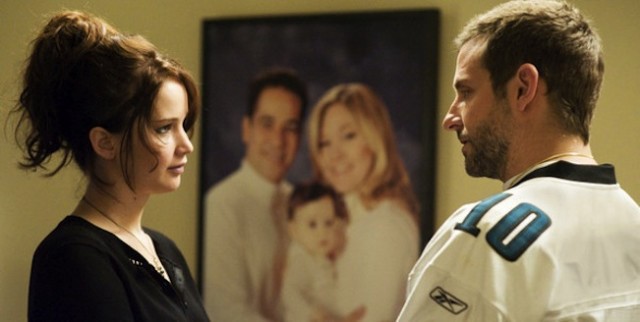
Would also gladly accept: Julia Stiles, Silver Linings Playbook, who was the best thing in the movie with 20 seconds on the screen, as well as Shirley MacLaine, Bernie.
* Notably: Stunt Coordination, which should have been added a decade ago.
Previously in series: Hollywood, Stop Botching Your Third Movies
Victoria Johnson actually started this as a piece about Charles Grodin, who would have been the Daniel Day-Lewis of this category in 1984.
New York City, February 21, 2013

★★★ Older kids, shrieking and hunched over with their hands in their pockets, scurried into the wind toward the high school. “The colder it is, the longer the walking takes,” the kindergartener said. By the time he got home again, afternoon light was scattering everywhere. In all directions, as far as the view could go, clockwise from south-southwest to north-northeast, the buildings had reflections of other buildings’ windows on them. Out on the Hudson, the shade-side windows of boats were lit up like camp lanterns. Downstream, behind the boxed-up scaffolded form of the space shuttle, a monumental row of footlights stuck out into the river, shining white. Under binoculars, the lighting rig resolved into the sun-struck windshields of cars parked on the top deck of the Circle Line pier, more than a mile away.
Make Sure You're Optimizing Content For the Mobile Market

These days, professional content curators have to go through a lot of crap to find that one thing that can be successfully blockquoted or very slightly rewritten to maximize SEO revenue streams — yet a cursory glance at the nation’s best performing aggregators finds an unsatisfactory maximazation of cross-platform responsive environments.
Brand management and audience engagement depend upon early conversions with the youngest consumers. Is your company losing eyeballs to competitors with better internals targeted to the post-diaper pre-toilet demo? Supercharge your mobile audience social sticky by adaptive dynamic layouts to lasso the tablet-potty market before you are literally destroyed and physically torn apart, limb by limb, by your eternal rivals. The CTA Digital 2-in-1 iPotty with Activity Seat for iPad drops on March 11, so pre-order now.
Hollywood, Stop Botching Your Third Movies
Hollywood, Stop Botching Your Third Movies
by John Ore
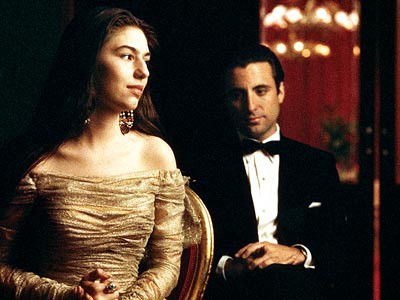
Ewoks. Tina Turner. Religious space prisoners. Sofia Coppola. Here is where we sit for a moment and gravely reflect on all the horrific things that can go wrong when an otherwise amazing trilogy hits its third installment.
I’m not the first to notice that Hollywood has trouble with third acts — although I refuse to believe Mad Max: Beyond Thunderdome clocks in at 81% on the Rotten Tomatoes Tomatometer. Return of the Jedi brings up the rear of the Star Wars trilogy with a startling 79% (A New Hope and The Empire Strikes Back easily top 90%, I think we can all agree that it’s Empire or GTFO). The Godfather Part III pulls in a 68% (compared to 100% and 98% for the first two), Alien 3 clocks in at 42%, over 55 percentage points lower than Alien and Aliens, illustrating the perils of killing off Corporal Hicks instead of Ellen Ripley. The Matrix trilogy drops even more precipitously, from 87% for the movie that brought us “bullet time” through 73% for Reloaded, settling in at 36% for Revolutions, which is where the plot became more confused than Keanu Reeves’ acting. Most people agree: there’s a criminal amount of neglect when it comes to Hollywood and its third children in franchises. What the hell is going on here?
As the Oscars draw near, the next in a series about our strong movie opinions, past and present.
First, while we’ll be discussing both here, we should probably make a separation between true beginning-middle-end trilogies and their shameless money-grab cousins, wherein a promising (and unexpectedly profitable) movie, having gotten parlayed into a series, happens to die with the third film, often with further installments getting piled on anyway in a sort of ceaseless death-rattle (please stop with the sacrilegious Alien movies!). Others try to force the framework of a trilogy on three similar movies. Kevin Smith’s so-called Jersey Trilogy — comprised, though it is, of decent films — makes a mockery of the whole notion of a trilogy. This isn’t ‘Nam, there are rules. Joey Lauren Adams and Jason Lee play completely different characters in Mallrats and Chasing Amy. Jay and Silent Bob and oblique references to fucking a dead guy in the Quick Stop bathroom do not a trilogy make.
What’s the point of going Aristotelian with a three-part structure if you’re going to botch the end? For most movies, the second act is the wasteland where the plot goes to die, and it’s certainly the toughest act to write: the A plot descends, the B plot gains prominence, and your protagonists are imperiled. Franchises like Indiana Jones, Die Hard and Lethal Weapon lost their way with second movies (and in all three cases, piling on the sin with awful fourth installments), effectively destroying any hope of a cohesive franchise no matter how good the third movies ended up being.
But as far as trilogies that tanked in third act, let’s start with the most egregious example, the one that should instantly spring to mind whenever people think of trilogies gone wrong, the time when Francis Ford Coppola decided Sofia was old enough to ruin the Godfather trilogy. (Nothing against Sofia, who was only 19 and has long since made up for her father’s crime.) How bad was it? Let’s revisit this 1991 Entertainment Weekly
story:
‘’Well-meaning people tell me I am permitting a form of child abuse,’’ Sofia’s mother, Eleanor, wrote in a diary she kept for Vogue during the filming, ‘’that she is not ready, not trained for what is being asked of her, and that in the end she will be fodder for critics’ bad reviews that could scar her for years. They also tell me that Francis can’t afford to take a chance that would weaken his work at this point in his career.’’ Her fears were harshly and promptly realized the moment Paramount finally screened Godfather III for the press on Dec. 12. Many members of the New York audience snickered at Sofia’s portrayal of the Don’s innocent daughter — and laughed out loud at her pivotal scene at the movie’s climax.
But it wasn’t just Sofia’s casting, by any means. The movie came out in 1990, 16 years after we’d left off the Corleone family in the Oscar-winning Godfather Part II. With that kind of lead-time, you almost have to be deliberate in scuttling the trilogy with a crappy third movie. But here you are, The Godfather Part III, with your overacting and Andy García and boring Vatican plot and nepotism and middle-school-drama-class “climax” on the steps of an opera house in Palermo. Coppola and author Mario Puzo both contributed to this mess, and it may have been too much time had passed since the 1970s to have any hope of finishing the trilogy with a third movie that lived up to its predecessors. Perhaps they forgot what made the first two so amazing, perhaps times had changed. Who knows? The fact that 1990 also brought us Miller’s Crossing and Goodfellas just makes it all the more astonishing that Coppola ended the quintessential gangster trilogy with such a whimper.
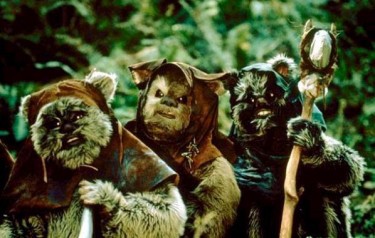
Pandering to audiences, merchandizing and soundtrack sales may have doomed the trilogies ending with Jedi and Thunderdome. Like The Godfather Part II, Empire was a darker, brooding movie that left audiences hanging in the second act of the trilogy. It’s tough for The Road Warrior to be more dystopian than the dark and dubbed Mad Max — his dog gets killed in both! — but a bloodied Max standing in the middle of a post-apocalyptic highway doesn’t exactly bring closure. So it was a bit of a slap in the face when Georges Lucas and Miller decided to close out their respective trilogies with Ewoks and “We Don’t Need Another Hero.” Cutesy Hollywood crap didn’t make these altogether awful movies, but it certainly eroded the goodwill their movies had up until that point. Lucas gave the world Darth Vader, then traded the icy-wasteland disembowelment of a taunton for teddy bears in a verdant forest. Miller gave the world Mel Gibson, then traded the Ayatollah of Rock-and-Rolla and the Feral Kid for Aunty Entity and adorable children speaking pidgin Australian dreaming about tomorrow morrow land. It’s just not fair, to them or to us — or to Tina. Oh Christ, Miller is working on a 4th and 5th.
Perhaps some directors just lose their way, and can’t figure out how they got where they were in the first place. The Wachowskis’ metaphysical meandering in Matrix Revolutions showed us they couldn’t figure their own trilogy out any more than we could. They didn’t seem to realize that the spoon simply wasn’t there in the first place.
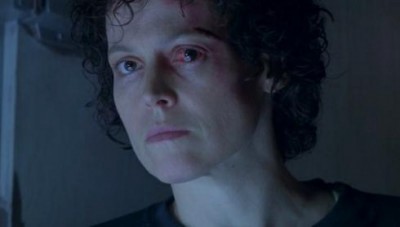
Or, you can blame a change in directors for the 3rd film bastardization of a decent franchise. God forbid you actually credit James Cameron with delivering two solid Terminator movies that survived a long stretch between installments (though half the length of time that separated Godfathers II and III). Jonathan Mostow and a brand-new cast (save Arnold) managed to ruin that with boring T-X Kristanna Loken. Cameron also came in and gave us a terrific follow up to Ridley Scott’s Alien with Aliens. But can we blame David Fincher’s too-late mercy killing of Ellen Ripley for the catastrophe that was Alien 3? Both are examples of overreaching after a great movie was followed by a blockbuster: these didn’t even need to be trilogies! But that didn’t stop the dark hand of Hollywood from overextending further into Terminator Salvation and the continuously-spawning monstrosities Alien: Resurrection and the AVP LOL-fest. (Don’t get me started on Prometheus.)
Trilogies aren’t the only victims. Franchises without cohesive beginning-middle-end structures similarly lose their minds with third films. Although Spielberg and Jeannot Szwarc were able to deliver two thrilling Jaws movies (I barfed after seeing the second one as a kid), not even Bess Armstrong could save Joe Alves’s 3D 3rd installment. What? I loved her in High Road To China. He, on the other hand, should have stuck with production design. John Rambo was our hero in two movies, a cheap propaganda prop in the third. Even Naked Gun’s Frank Drebin betrayed us after two films, or perhaps he was just lacking OJ Simpson’s comedic timing.
There’s a lot of wrong going on here, so has anyone done it right? Peter Jackson, clearly. The Lord Of The Rings trilogy is the undisputed champion of movie trilogies. One Trilogy To Rule Them All. These are epic, sweeping, engrossing films that stand on their own as tales and fit together seamlessly as a cohesive story. Perhaps it’s because they were based on a terrific literary trilogy in the first place, or the fact that they were all filmed together before the release of The Fellowship of the Ring, but they are pretty peerless when it comes to movie trilogies. Perhaps fittingly, they closed out with an Oscar haul for The Return of the King, going out on a high note rather than setting the third up for even more failure (sorry, I keep picking on Coppola, don’t I?). What else comes close? The Toy Story trilogy is a solid effort, even with a director change for Toy Story 3. I’m a big fan of Army of Darkness, but does the Evil Dead trilogy even belong in the same conversation?
Hollywood: please learn how to finish.
Previously in series: ‘Crash’: The Most Loathsome Best Picture Of Them All
John Ore is still salty about Ridley Scott lifting a Zulu war chant from Michael Caine’s first movie and trying to pass it off as Germanic.
